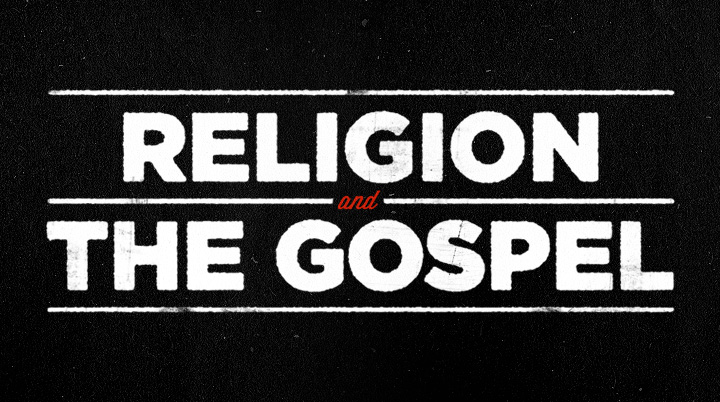This past Sunday, I taught from Philippians 3:1-11 about the difference between religion (rubbish!) and the life God calls us to (Relationship). I spoke a little bit from Tim Keller’s Gospel in Life Study Guide (Grand Rapids: Zondervan, 2010), p. 16 where Keller lays out some great insights on the difference between Religion and the Gospel.
Here’s his full list:
Acceptance
- Religion: “I obey; therefore, I’m accepted.”
- Gospel: “I’m accepted; therefore, I obey.”
Motivation
- Religion: Motivation is based on fear and insecurity.
- Gospel: Motivation is based on grateful joy.
Obedience
- Religion: I obey God in order to get things from God.
- Gospel: I obey God to get God – to delight in an resemble him.
Circumstances
- Religion: When circumstances in my life go wrong, I am angry at God or myself, since I believe that anyone who is good deserves a comfortable life.
- Gospel: When circumstances in my life go wrong, I struggle, but I know my punishment fell on Jesus and that while God may allow this for my training, he will exercise his Fatherly love within my trial.
Criticism
- Religion: When I am criticized, I am furious or devastated because it is critical that I think of myself as a “good person.” Threats to self-image must be destroyed at all costs.
- Gospel: When I am criticized, I struggle, but it is not essential for me to think of myself as a “good person.” My identity is not built on my record or my performance but on God’s love for me in Christ.
Prayer
- Religion: My prayer life consists largely of petition, and it only heats up when I am in a time of need. My main purpose in prayer is control of the environment.
- Gospel: My prayer life consists of generous stretches of praise and adoration. My main purpose is fellowship with God.
Confidence
- Religion: My self-view swings things between to poles. If and when I am living up to my standards, I feel confident, but then I am prone to be proud and unsympathetic to failing people. If and when I am not living up to standards, I feel humble but not confident – I feel like a failure.
- Gospel: My self-view is not based on my moral achievement. In Christ I am simul lustus et peccator – simultaneously sinful and lost, yet accepted in Christ. I am so bad that he had to die for me, and I am so loved that he was glad to die for me. This leads me to deep humility and confidence at the same time.
Identity
- Religion: My identity and self-worth are based mainly on how hard I work, or how moral I am – and so I must look down on those I perceive as lazy or immoral.
- Gospel: My identity and self worth are centered on the one who died for me. I am saved by sheer grace and I can’t look down on those who believe or practices something different from me. Only by grace am I what I am.



